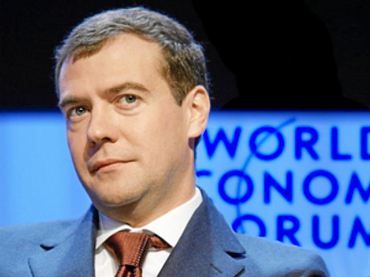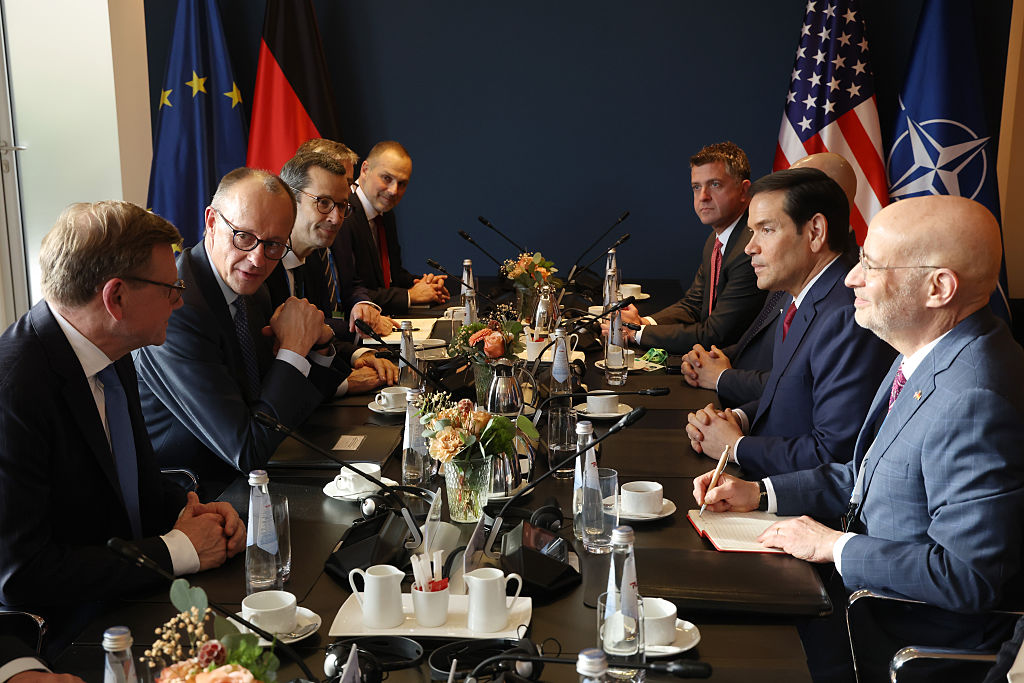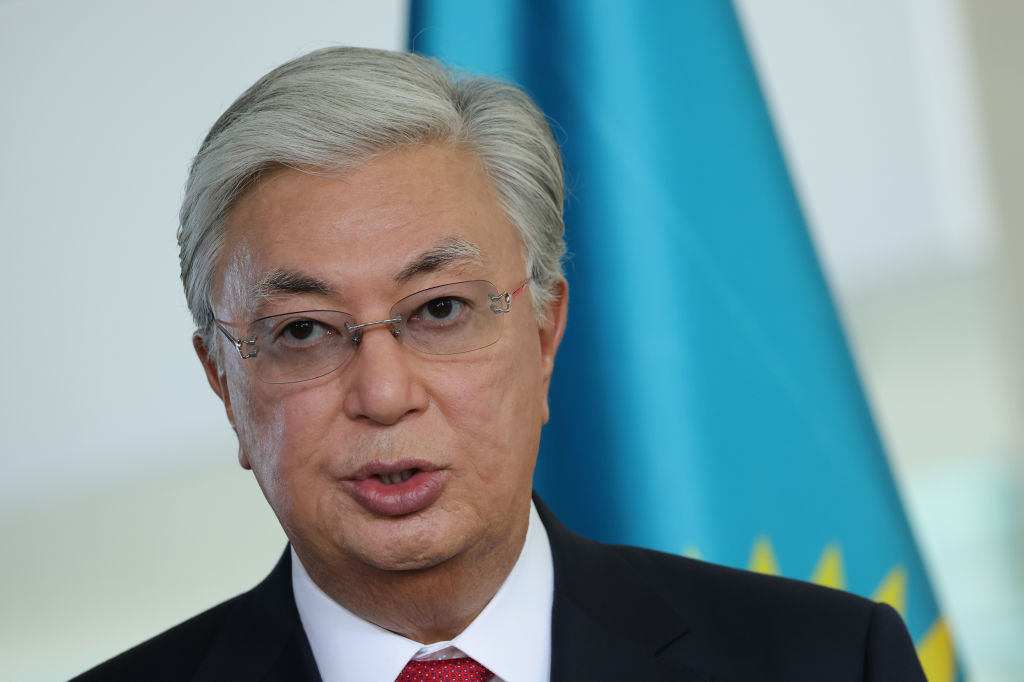
Medvedev Attempts to Rally Support in Davos for Russia’s “Modernization”
Medvedev Attempts to Rally Support in Davos for Russia’s “Modernization”
The privilege of addressing the opening session of the World Economic Forum (WEF) in Davos is valued highly by the Russian President, Dmitry Medvedev, who interprets this as international recognition of the business correctness of his “modernization” course. Following today’s bombing of Domodedovo airport in Moscow, the presidential administration announced that Medvedev’s trip to Davos will be postponed. Last year French President, Nicolas Sarkozy, lashed out against the greed and irresponsibility of bankers, but Medvedev is unlikely to elaborate on that idea of restoring the “moral dimension” of capitalism, which is not that prominent in Russian state-and-crony capitalism. In the many economic gatherings in 2010, including the G8 and G20, APEC and his own Yarolslavl forum, Medvedev did not have much to say, except perhaps arguing half-heartedly for abandoning the US dollar as the universal currency. The key opinion on this matter belongs, however, to the Chinese, and President Hu Jintao visiting the US last week reduced this opinion to the slightest of hints about the possible appreciation of the Yuan (www.gazeta.ru, 20 January 20). Medvedev, therefore, is likely to insist that resumed growth in Russia is a force in the global recovery from the not-so-bad crisis and to court investors (Rossiyskaya Gazeta, Kommersant, January 22).
This think-positive perspective has been painted in every official speech by the Russian leadership in the last few months, but it stands in sharp contrast to the warnings of the WEF experts about the inadequacy of existing institutions for managing the evolving crises in the global system (Vedomosti, January 12). In fact, Russia is a perfect example of a broken model of growth based on ever-rising rent and corresponding inflow of capital, and an honest assessment of the damage inflicted by the crisis could have been a valuable contribution to the Davos debates. No such reckoning with reality will happen because Russian officialdom remains in denial of the economic trajectory, which the grandmaster of Russian economists Yevgeny Yasin defines as stagnation caused by bureaucratic pressure on business activity (Ezhednevny Zhurnal, January 20).
The sluggish 3-4 percent growth means that even by the end of the year Russia will not reach pre-crisis levels, so the goal of doubling GDP, reiterated by the Kremlin many times, will be postponed indefinitely (www.newsru.com, January 18). The main stimulus for sustaining even this statistically but not economically significant growth is the expansion of state investments and budget spending, but inflation has accelerated even more and a double digit level is predicted by many experts (Nezavisimaya Gazeta, January 19). The crucial determinant for the Russian economy is the upward trend in world oil prices, which have crossed the psychologically important threshold of $100 per barrel. The undeserved inflow of revenues will help in reducing the budget deficit, but no boost in business confidence is discernible (www.forbes.ru, January 20). This “good news” has only added to the anxiety about the depressing effect of high oil prices on global growth and over the consequences of the inevitable bursting of yet another petro-bubble (RBC Daily, January 19).
One sensational deal in the Russian energy sector announced on the eve of Medvedev’s “have-no-fear” performance in Davos is the birth of the “Bolshoi Petroleum” alliance by an exchange of shares between BP and Rosneft (Vedomosti, January 17). Moscow commentators suggest that BP, which has a long and unhappy history in the Russian market, is desperate to book some new reserves because its market capitalization has plummeted after the “Deepwater Horizon” disaster in the Gulf of Mexico (Kommersant, January 17; www.forbes.ru, January 18). As for Rosneft, the partnership with a Western “major” will help in whitewashing its reputation tainted by the very dubious acquisition of assets confiscated in the course of the politically-driven bankruptcy of Yukos. Prime Minister, Vladimir Putin, who orchestrated that “special operation” in 2003-2005, personally supervised the deal with BP negotiated by his trusted lieutenant, Igor Sechin, who is in charge of the energy sector in his post as Deputy Prime Minister and chairs the Rosneft board (Novaya Gazeta, January 18).
Medvedev needs to lift another shadow from that old abuse of power, and in Davos he seeks to demonstrate that the investors’ attitude has not changed after the harsh verdict in the crudely fabricated case against Mikhail Khodorkovsky, the former owner of Yukos, and his partner Platon Lebedev (www.gazeta.ru, January 19). Some investors indeed have zero memory, and a rush of speculative capital was registered last week on the Moscow stock exchange as the oil “futures” began to sky-rocket (Kommersant, January 22). This, however, is a symptom of the persistent “oil curse” rather than an indication of strength in the Russian economy (Vedomosti, January 19). Some investors, who are contemplating Medvedev’s proposition on “modernization,” may be unimpressed by Khodorkovsky’s plight, but they have to take into consideration the rot spreading from the oil and gas business. Investing in a walled high-tech enclave is one thing, but partaking in the construction of a Potemkin village camouflaging a huge corruption scam is certainly another. Medvedev’s pet-project of Skolkovo is supposed to be a symbol of Russia’s modernization, but he can just as innocently suggest that suburban nouveau riche palaces along the Rublevskoe highway are a symbol of Russia’s prosperity.
Russia’s political system remains resolutely anti-modernization as its incentive system is centered on extracting exorbitant profits by tapping into unaccountable money flows at very low risk (Vedomosti, January 21). Medvedev’s “modernization” discourse pretends to offer an alternative model of connecting with global innovation and production chains, but it merely provides a cover for Putin’s deeply corrupt system of privatizing the administrative rent. It was in Davos that Medvedev first presented his investor-friendly attitude in February 2007, and quite probably this WEF session will mark the closure of his failed leadership. This failure is determined not by the conditions of the power-sharing deal with Putin, or by such character flaws as a lack of guts; most of all, it is caused by the non-existent interest in change in the bureaucracy and also within the society. The system of predation and paternalism still has some reserves for prolonging its life-cycle, but when those are exhausted – it will be too late to cry “Change!”


